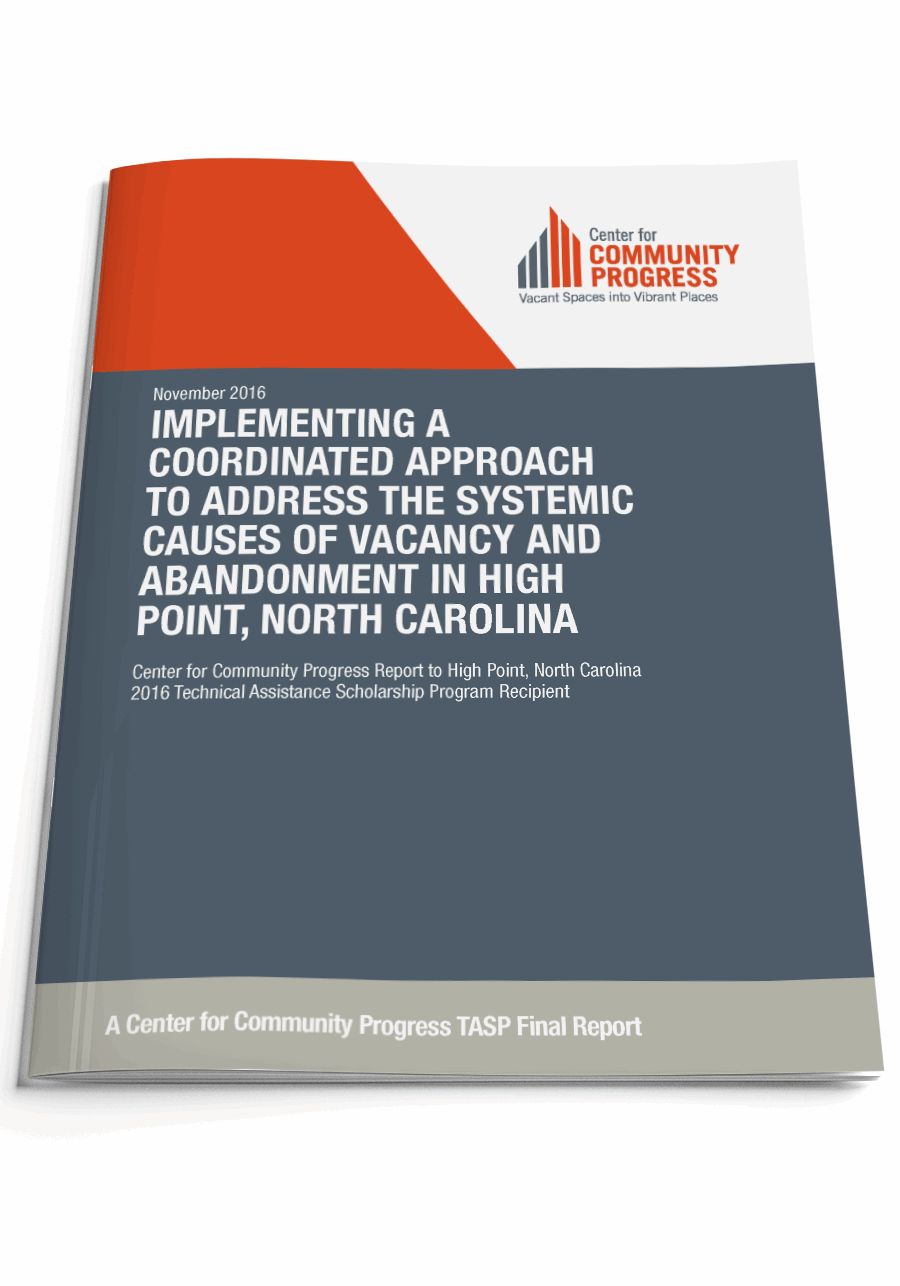Implementing a Coordinated Approach to Address the Systemic Causes of Vacancy and Abandonment in High Point, North Carolina
A Community Progress Technical Assistance Report
Topic(s): Code Enforcement System, Local Analysis, Parcel Data & Neighborhood Markets, Property Tax System
Published: November 2016
Geography: North Carolina
Author(s): Center for Community Progress
In spring 2016, Community Progress — through our technical assistance scholarship program — worked with the City of High Point, North Carolina to build a more strategic code enforcement system. The City was also exploring an innovative idea: integrating the provision of social services into their code enforcement approach. In other words, addressing not only the problems with the properties, but also the needs of the people living there.
Our key findings were:
1. Despite a very skilled and responsive IT staff, departmental data is not frequently aggregated and analyzed, and there is no shared understanding throughout City government of the scope, scale, and contributing factors of vacancy and abandonment in High Point.
2. Many departments are individually pursuing a variety of creative approaches to minimize the harm of vacancy and abandonment, all with the tools and resources at their immediate disposal, but with limited impact given the lack of coordination and absence of an overall strategic vision.
3. The City’s need is less about how to make an existing code enforcement system more strategic, and more about building a new code enforcement division and program from the ground-up.
4. The tax enforcement system, as currently implemented, is likely contributing to vacancy and blight in a manner that City and County officials may not fully understand.
Our work centered on four key focus areas:
1. Data Management Systems and Practices: Assist with the creation and preliminary work of the High Point Data Team to better understand the scope, scale and nature of vacancy and abandonment.
2. Code Enforcement Systems: Assist with building consensus on the most effective and strategic approach to code enforcement in the face of restrictive state laws.
3. Property Tax Enforcement Systems: Facilitate discussion between Guilford County and City of High Point officials to assess current tax enforcement practices, better understand the legal framework for what’s possible, and explore potential reforms to minimize the costs and harms presented by vacant, abandoned, and tax delinquent properties.
4. Community Partnerships and Programs: Facilitate roundtable discussions with community stakeholders and help identify new opportunities for coordination and collaboration, including the provision of social services to the occupants of problem properties.

Topic(s): Code Enforcement System, Local Analysis, Parcel Data & Neighborhood Markets, Property Tax System
Published: November 2016
Geography: North Carolina
Related Publications
Other Related Content
Subscribe to join 14,000 community development leaders getting the latest resources from top experts on vacant property revitalization.
